Shobha Warrier in Chennai
The average cinemagoer in Tamil Nadu might not even have heard of a film called Sengadal --The Dead Sea.
But the film was the only Tamil entry at the International Film Festival of India in Goa this year.
It has also won several international awards. More than a film, it is a political statement by Leena Manimekalai, an engineer-turned-filmmaker. The film is about the sufferings of fishermen caught in the Sri Lankan ethnic crisis.
Though Sengadal is her first feature film, Manimekalai has made 10 documentaries and won several awards at various international film festivals and has just been selected for the Charles Wallace Fellowship.
Before leaving for London for the fellowship programme on documentary film-making, Manimekalai spoke to Shobha Warrier on how Sengadal was made and received.
What was the inspiration behind Sengadal? Is it the culmination of all the documentaries you have made so far?
As I come from a political family of Communists, I was directly and indirectly involved with the Sri Lankan crisis throughout my youth. I was part of a group that was involved in the anti-war movement and India's stance in the war. Documentary filmmaking was an extension of my activism.
In 2009, the ethnic crisis in Sri Lanka was at its peak. The air you smelt and the noise you heard were filled with human cries. I could not but get involved in it more directly. That was how I got involved with the fishermen's movement. The stories the fishermen and women from the Rameswaram area shared with me were horrifying. Every household had lost at least one person to the sea.
I wanted to convey through the film that they wanted to live in peace and be treated like human beings. My film is a documentation of the time from January to May 2009.
'Sengadal is a political film'
Image: A scene from SengadalDid the line between documentary and feature film blur while making Sengadal?
You may wonder whether it is real or captured. That is very intentionally done. I wanted to capture the lives of those people and whatever tools helped me as a filmmaker, I used them.
Did you use real people in the film?
Yes, there were no actors in my film; all are real people. It is actually a community participatory work.
Why do you then call it a feature film, and not a documentary?
Because it is not a documentary. I had made 10 documentaries before, and I would call a documentary, a documentary. This film is based on a bound script. I only used real people to act in my film, that's all. We had a series of workshops to teach them how to act in front of the camera.
'There is a meta-fiction of a filmmaker in the film'
Image: A scene from SengadalWhat kind of ground work did you do before you started making the film?
It took six months of research and 100 hours of sharing their stories. I interviewed hundreds of fishermen and women, police officials, intelligence officials. Through NGOs, I visited refugee camps.
How difficult was it?
It was very difficult, as difficult as the fishermen's lives. There is a meta-fiction of a filmmaker in the film. A filmmaker is trying to film the fishermen's lives and she gets constantly interrogated and harassed, her tapes were confiscated and she fails to make the film.
But you made the film...
It almost happened with me. Every time I went to do research, I was stopped by the Navy, police, etc. I only had the love and trust of the fishermen and nothing else. That's from where I gained courage and it saved me from many critical issues.
It was a community participatory work. Every scene and dialogue was drawn from their lives. When we were shooting in the sea and when a Navy plane flew over us, the fishermen hid us film-makers under a net.
'I had problems with the producers'
Image: A scene from SengadalWhy did you call the film Sengadal which means 'red sea'? Is it symbolic of the blood that has become part of the sea?
It is a Biblical allusion. In the Bible, it is the Red Sea, but I gave it the meaning of Dead Sea or Sava kadal, the sea that kills people. It is like Moses helping his people cross the sea. Here, the Tamil fishermen cross the sea to India hoping for a better life but the situation is worse here.
There is a dialogue in the film that the refugee camps are no better than an Army camp. The camps smell of dead bodies and there are crows, vultures, and dogs vying for the dead bodies. Death is in the air.
There is also the possibility of interpreting it as the sea filled with the blood of fishermen.
You had a lot of problems with the Censor Board.
I had problems with the producers too. Film director Samuthirakani was the producer initially. But he withdrew after six days of shooting as there was a conflict between independent film-making and people from the industry.
But I could not stop shooting. So, I begged all the people I knew, my friends and relatives, to contribute. After 11 days of shooting, there was no money and we stopped shooting and came back to Chennai.
I showed whatever we had shot to many people, including Janaki Sivakumar, wife of the chief engineer at A R Rahman's studio. She helped me by collecting money and becoming the producer. I did the rest of the shooting with her support.
It took me another seven to eight months to complete the post-production work. It was only ready in January 2011.
When I took the first copy to the Censor Board they said the film was not qualified to be exhibited in public for three reasons: it makes denigrating statements about the Indian government, about the functioning of the Sri Lankan government, and the dialect of the fishermen is unparliamentary.
I went to the Appellate Tribunal. They asked the Central Board of Film Certification to re-examine the film. Leela Samson became the head of CBFC by then and the film was given a certificate without any cuts but with an A certificate. I had to negotiate the corridors of power single-handed.
'It was a very difficult film to make'
Image: A scene from SengadalAfter that, Sengadal went to quite a few international film festivals and won awards too...
It was premiered in the official competition at the 32nd Durban International Film Festival. Then, it was the official selection for the First Film Competition at the 35th World Montreal Film Festival. It won the NWAFF Award at the Tokyo International Women's Film Festival.
In the International Competition at the Mumbai Film Fest, MAMI, Sengadal was the only Indian film. At the International Fishermen's film festival in France, it was the opening film. They have subtitled it in French.
What was your feeling when it was selected as the only Tamil film in the Indian Panorama at the IFFI, Goa?
It was a pleasant surprise, because it is a political film and is very critical of the Indian government. And the Indian government choosing it as the best Tamil film gives you hope that there is democracy in this country. It gives you a huge hope that the lives of fishermen, treated as of no value, is after all important.
'I plan to release the film on the internet'
Image: A scene from SengadalHow was the response in Goa?
Tremendous. More than that, this film has given me space to talk about the issue. Fishermen on all the borders in the world face the same plight.
How did the Tamil film industry react to your film?
This is how they reacted: at the Chennai Film Festival, all the films shown in the Indian Panorama at Goa were shown, except Sengadal. They were scared because it talks politics directly. There was censorship at the festival, which angered me.
Film festivals generally show provocative films. It's a place where you can breathe freedom. So, on the opening day, I protested. After the protest, it was shown.
When do you plan to release the film?
I plan to release it on the Internet where there are no powerbrokers like the distributors and theatre owners in between. I can then market it in the social media.

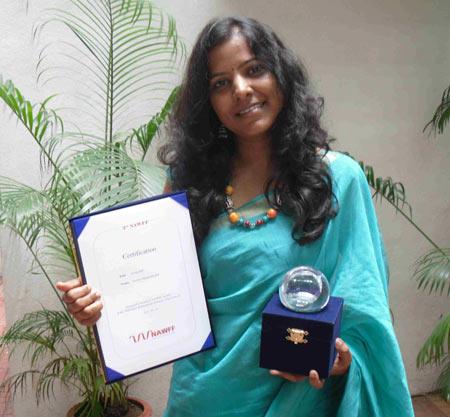
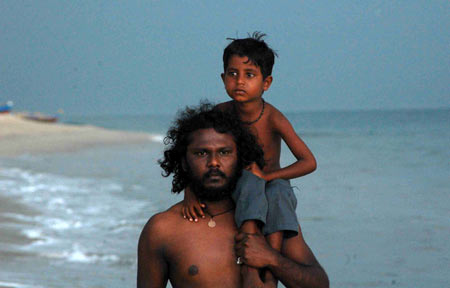
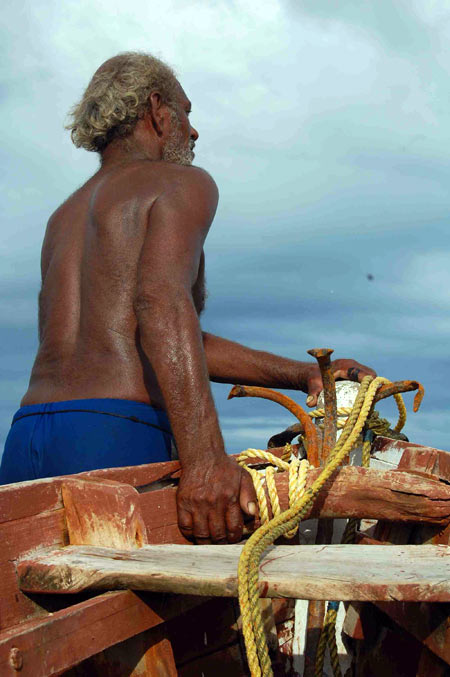
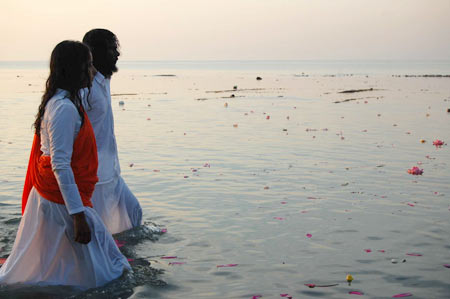
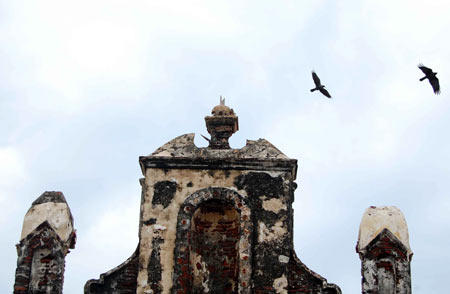
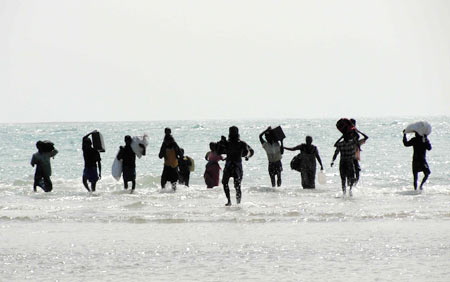
Comment
article